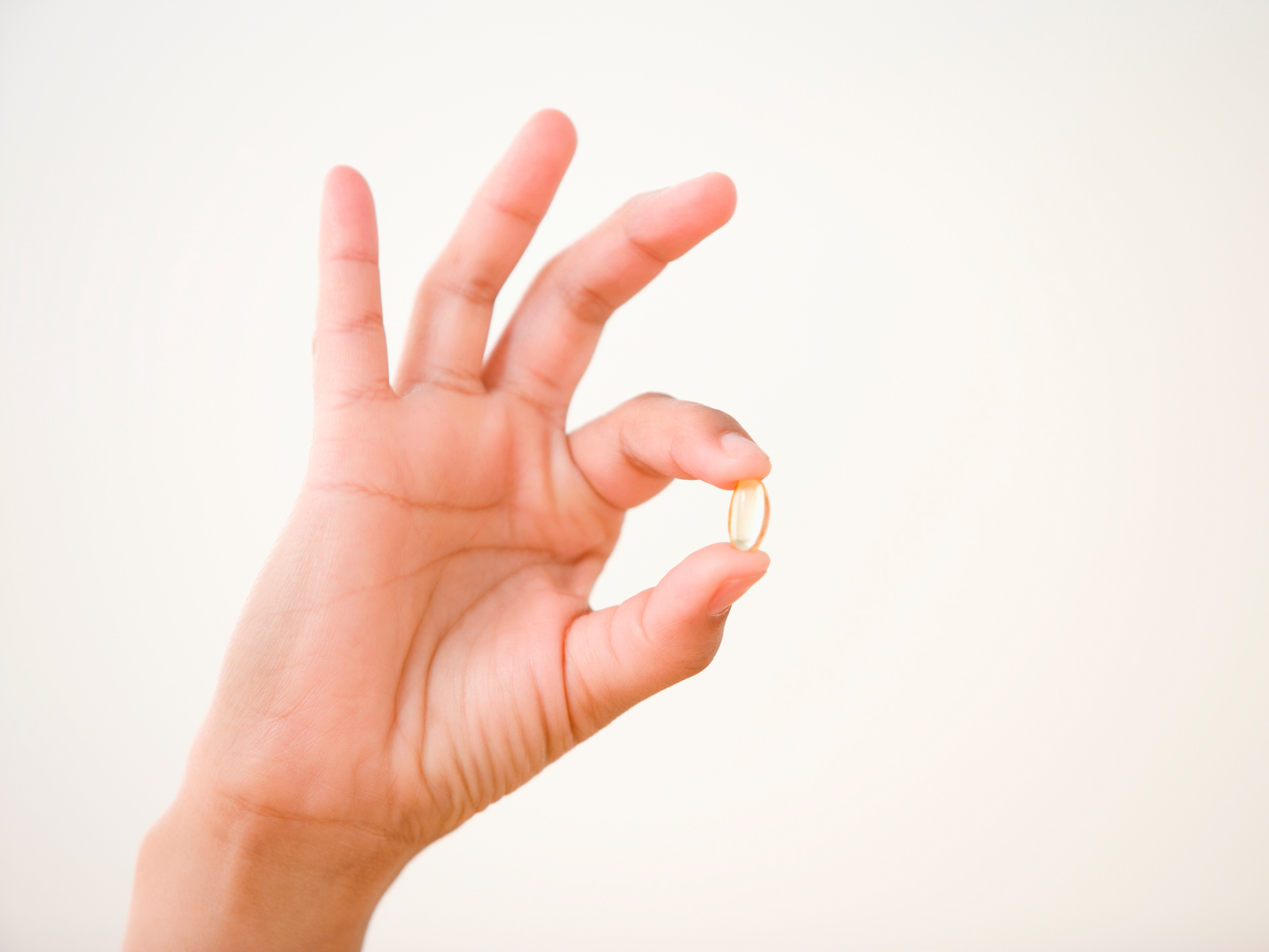Get Easy Health Digest™ in your inbox and don’t miss a thing when you subscribe today. Plus, get the free bonus report, Mother Nature’s Tips, Tricks and Remedies for Cholesterol, Blood Pressure & Blood Sugar as my way of saying welcome to the community!
The vitamin that squashes psoriasis symptoms

For years, people with psoriasis have noticed something strange about their chronic, painful skin condition…
It gets better in the summer. They still have symptoms — red, scaly, itchy skin — but their symptoms aren’t nearly as severe during the warmer months.
If you have psoriasis, you may have noticed this seasonal shift in symptoms yourself. But have you ever wondered why this happens?
The answer is simple when you think about it. You get far more sun in the summer, which means you also get far more vitamin D.
Doctors have observed the connection between sunlight and psoriasis for decades. They’ve even witnessed the difference that creams and ointments that contain vitamin D can make in the severity of the disease.
But no one has studied the impact of vitamin D supplements on psoriasis… until now…
Can vitamin D supplements help psoriasis?
Researchers from Massey University recently dove into the connection between vitamin D levels and psoriasis symptoms. They conducted a year-long study where they had one group of psoriasis sufferers take daily D3 supplements and another group take a placebo.
The results came back inconclusive. But for a very fascinating reason…
Both groups experienced an increase in vitamin D levels. Even though the placebo group didn’t take D3, they ended up raising their vitamin D levels some other way… most likely from sunlight.
That was bad news for researchers, because it meant that they couldn’t compare the two groups to see if D3 supplements levels worked better than the placebo. But that’s okay. They still gleaned some valuable information from the study…
Both groups ended up with less severe psoriasis symptoms once the study was through. And they found strong evidence for a link between higher vitamin D levels and lower psoriasis severity. Researchers used something called the Psoriasis Area and Severity Index (PASI) to gauge the severity of psoriasis symptoms. And as vitamin D levels went up, PASI scores went down. This inverse relationship held true for people with vitamin D levels up to 125 nmol/L.
Now, before you run out and buy a D3 supplement, you should know that vitamin D might not help everybody with psoriasis. The connection between vitamin D levels and psoriasis severity existed in two-thirds of study participants. But didn’t apply to the final one-third for some reason.
Still, if you have psoriasis, there’s a good chance you fall in that two-thirds of people vitamin D could help.
Easing psoriasis symptoms with vitamin D
Why does vitamin D help some psoriasis sufferers and not others? It could be that some people are far more vitamin D deficient, so raising their levels has a bigger effect on their body and health. But whatever the reason, checking your vitamin D levels is a good idea if you have psoriasis.
After all, this isn’t the only study that connects vitamin D deficiency to psoriasis. A study published by Italian researchers a few years ago found that vitamin D deficiency is far more common in people with psoriasis.
The disease itself may also create a vicious cycle of vitamin D deficiency, because psoriasis sufferers often wear long pants and sleeves to cover their lesions. But by doing this, they’re getting less vitamin D from the sun.
So, if you have psoriasis and you haven’t had your vitamin D levels tested in a while (or ever), make it a priority. If your levels are low, taking a D3 supplement and getting more sun could make a difference in your symptoms.
You could also try ointments or creams that contain vitamin D. If you apply them directly to your psoriasis flare-ups, you’ll be surprised by the improvement. Of course, creams and ointments won’t prevent future flare-ups, just ease existing ones. So, get to the doctor and get that vitamin D test! Or if you’re more of a DIY type, order a test online. You have no time to waste if you want to see your psoriasis symptoms get better… and stay better… no matter what season it is.
Editor’s note: There are perfectly safe and natural ways to decrease your risk of blood clots including the 25-cent vitamin, the nutrient that acts as a natural blood thinner and the powerful herb that helps clear plaque. To discover these and other secrets of long-lived hearts, click here for Hushed Up Natural Heart Cures and Common Misconceptions of Popular Heart Treatments!
Sources:
- Vitamin D could provide psoriasis relief — MedicalXpress. Retrieved March 28, 2018.
- A. Ingram, et al. “Oral vitamin D3 supplementation for chronic plaque psoriasis: A randomized, double-blind, placebo-controlled trial.” — Journal of Dermatological Treatment, 2018.
- Psoriasis and vitamin D deficiency — Harvard Medical School. Retrieved March 28, 2018.













